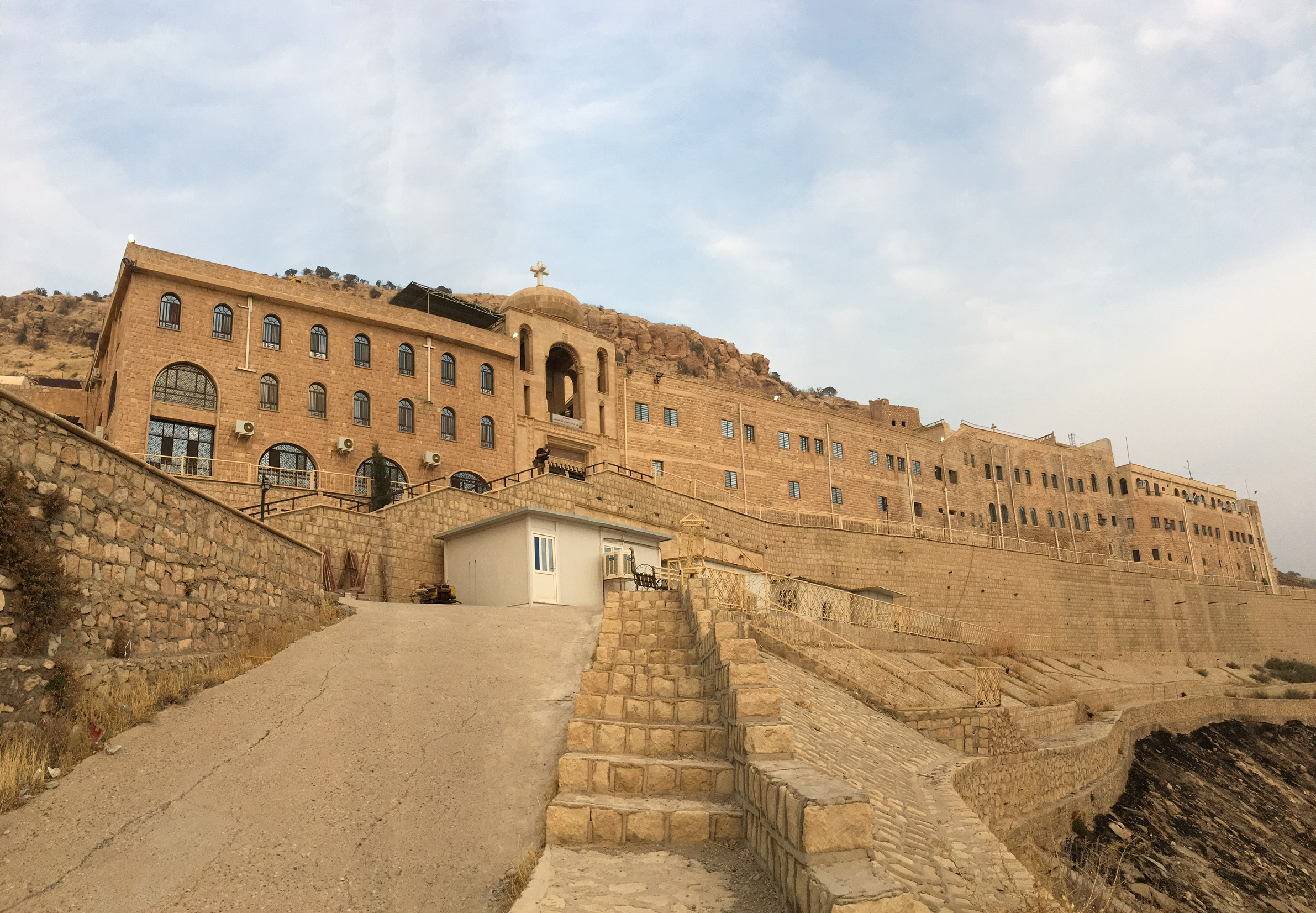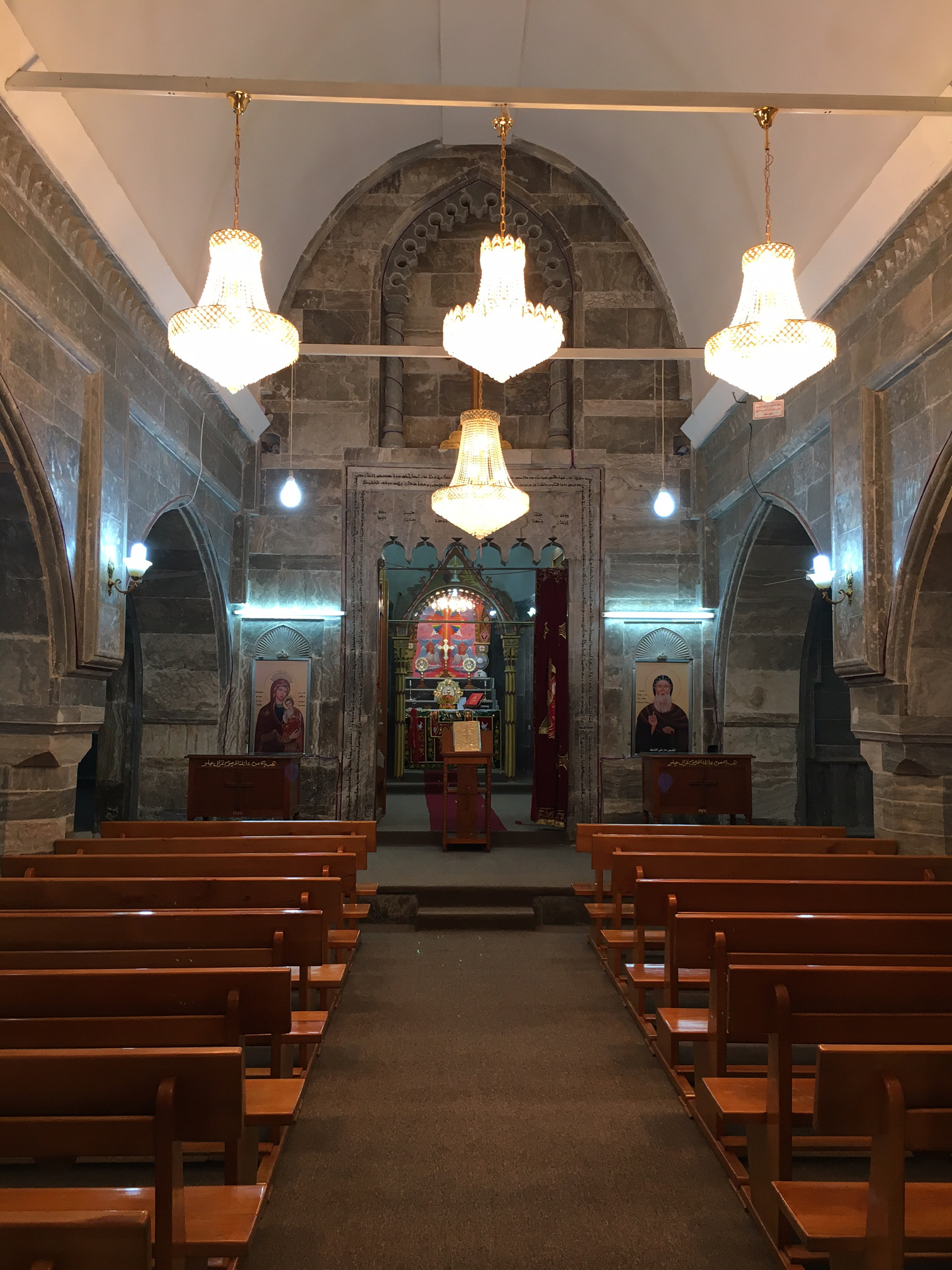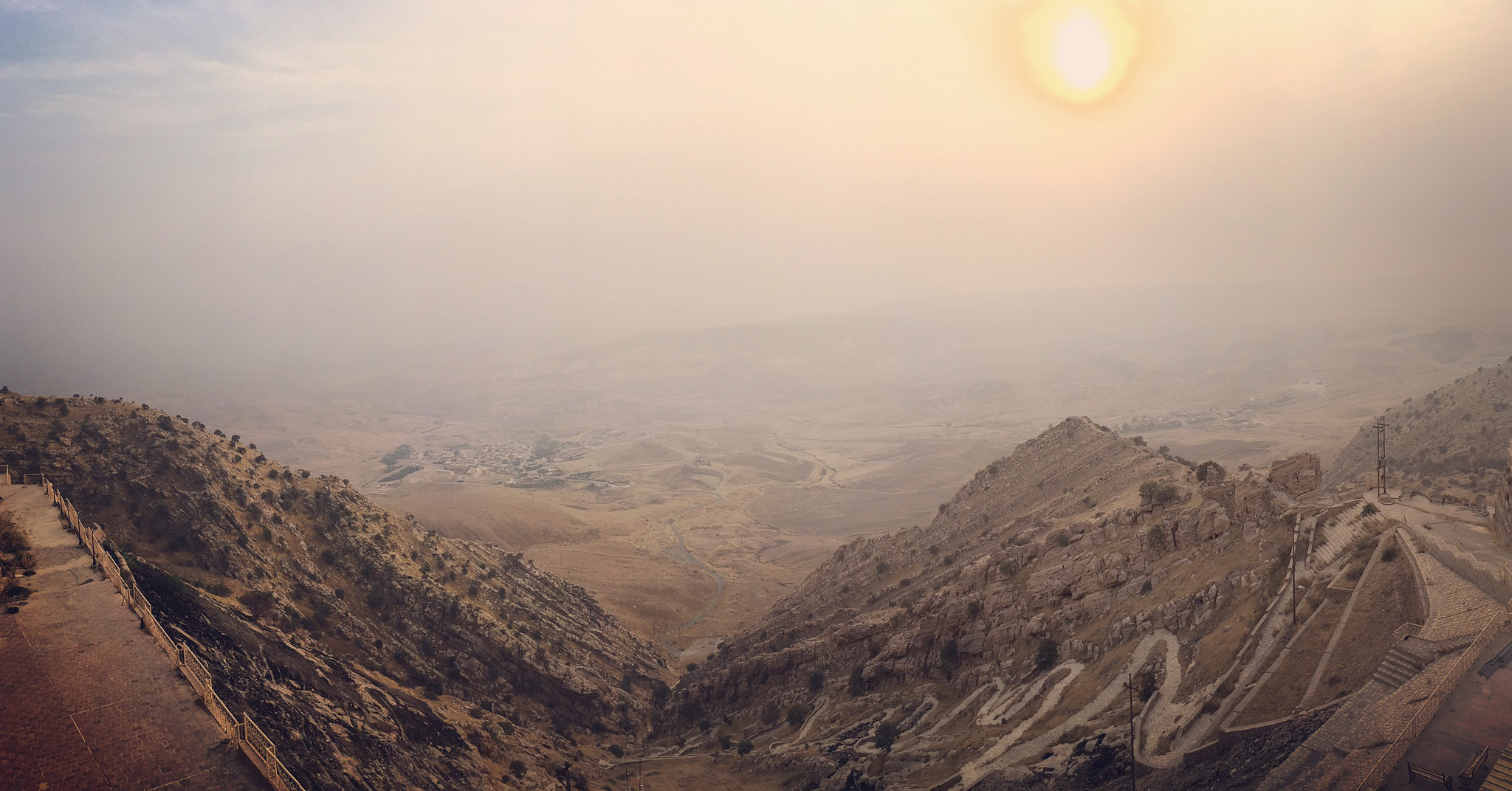Mountainside Monastery a Sanctuary From the Battle for Mosul
Families from the area have sought sanctuary at the Mar Mattai monastery.
—MAR MATTAI MONASTERY, Iraq -- Nestled into the side of Mount Alfaf, the imposing Mar Mattai monastery looks down onto the barren valley of the Nineveh plain. On a clear day, the monks who live here can see the lights from Mosul 15 miles away. But these days, the sky is hazy with smoke from oil well fires set by ISIS and the fighting to re-take Iraq’s second-biggest city from the terror group.
As ISIS swept through northern Iraq in the summer of 2014, the six Syriac Orthodox monks and their bishop prepared for the 1,600-year-old monastery to be overrun. They quickly packed up their most valuable items, texts and manuscripts, and sent them deeper into Kurdish Iraqi territory for safekeeping.
They watched as ISIS took over Christian towns nearby, ransacking churches and driving thousands from their homes. As militants came within three miles, occupying the village of Bashiqa, they did what their predecessors have done for centuries and braced for the invaders.
“We think if they harm us, it’s a reward,” said Father Joseph Ibrahim, referring to martyrdom.


But Kurdish peshmerga forces stopped the ISIS advance and the monastery was spared. Those same forces now guard the stone gate at the bottom of the monastery’s steep, winding driveway. They were ordered to be stationed there by the president of Iraq’s Kurdistan region, Masoud Barzani, and threatened with execution should anything happen to the monastery, Father Joseph said.
Long a destination for Iraqi and foreign pilgrims, Christian families from the area sought sanctuary at Mar Mattai, named for Saint Matthew. Most of have now moved on, either into Kurdistan or abroad. But one family remains: three adult siblings and their sick mother from Mosul.
“We are never going back, we cannot,” one sister said, describing neighbors and friends they knew for decades who became ISIS supporters when the fighters took over the city.

Father Joseph, clad in the monks' long black robes and embroidered hood, agrees that the religious and ethnic diversity Mosul was once known for is likely lost forever. His brother was murdered in Mosul in 2006 for being Christian.
“ISIS spent two years to wash the minds of the people there,” he said, “so they have a great hostility.”
In the push to re-take Mosul, Iraqi forces have liberated the nearby Christian village of Bartella from ISIS and are fighting to expel militants from Qaraqosh, once the biggest Christian town in Iraq. But it remains to be seen whether residents return, amid a mass exodus of Iraqi Christians that has seen their numbers drop by over 1 million since the U.S.-led invasion in 2003.
“What we see is a bigger plan to empty the Middle East of Christians,” Father Joseph argued. But his own future here at the monastery, and in Iraq, is not in doubt.
“[I] may be the last one,” he laughed.




